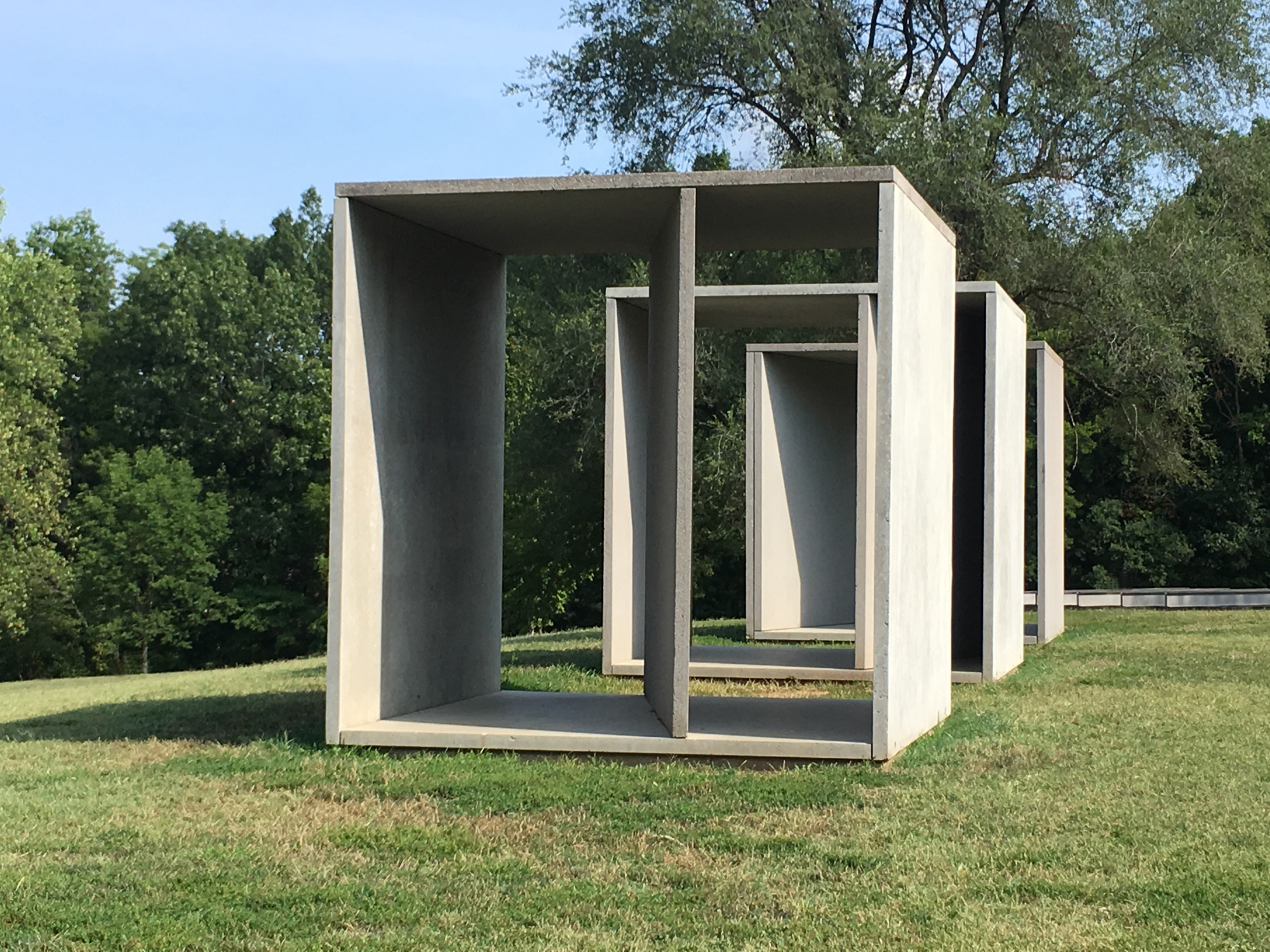DONALD JUDD
(AMERICAN, 1928–1994)
Untitled, 1984
concrete with steel reinforcements
98 1/2 x 98 1/2 x 492 inches
Laumeier Sculpture Park Collection, with funds from Mark Twain Bancshares, Dr. and Mrs. Alvin Frank, David Mesker, Linclay Corporation and the Forsythe Group
Donald Judd sought autonomy and clarity for the constructed object and the space it creates. Laumeier is fortunate to have a major outdoor concrete work by this historically important artist. Untitled, 1984, consists of three open-ended, concrete cubes, aligned so that the viewer may look through them like a tunnel. Partitions are placed vertically inside each cube at varying angles, calculated to change the viewer's perception of the sculpture and surrounding landscape. The box form appears frequently in Judd's work and is considered a prime example of the conceptual interests of the Minimalist movement. Untitled illustrates this through Judd’s ability to create a work that refers back to its own material presence, combining industrial processes with a simplified exploration of color, volume and form.
Sculpture Interaction Guideline: Touch, But Do Not Climb
ARTIST BIOGRAPHY
Donald Judd was born in 1928 in Excelsior, Missouri. He served in the United States Army from 1946 to 1947 before attending The College of William and Mary, Williamsburg; the Art Students League, New York; and Columbia University, where he received his B.S. in Philosophy in 1953. Judd was one of the leaders of the Minimalist Movement in the 1960’s and 1970’s and was the founder of The Chinati Foundation, a contemporary art museum in Texas. With more than 100 solo exhibitions and 500 group exhibitions, his work continues to be exhibited extensively throughout the world in places such as Australia, Austria, Canada, Denmark, England, France, Germany, Iceland, Italy, Japan, Norway, Spain, South Korea, Switzerland and the United States. Judd's work is represented in collections including the Museum für angewandte Kunst, Vienna; the Tehran Museum of Contemporary Art, Iran; the Migros Museum für Gegenwartskunst, Zurich; the Tate Modern and the Tate Britain, London; the Museum of Contemporary Art, Chicago; the Walker Art Center, Minneapolis; Storm King Art Center, Mountainville, New York; the Solomon R. Guggenheim Museum and the Museum of Modern Art, New York; the San Francisco Museum of Modern Art; and the Hirshhorn Museum and Sculpture Garden, Washington, D.C. He received grants and awards from the John Guggenheim Memorial Foundation, the National Endowment for the Arts and the Swedish Institute, among others. Judd moved to Marfa, Texas, in 1972, where he lived and worked until his death in 1994.

